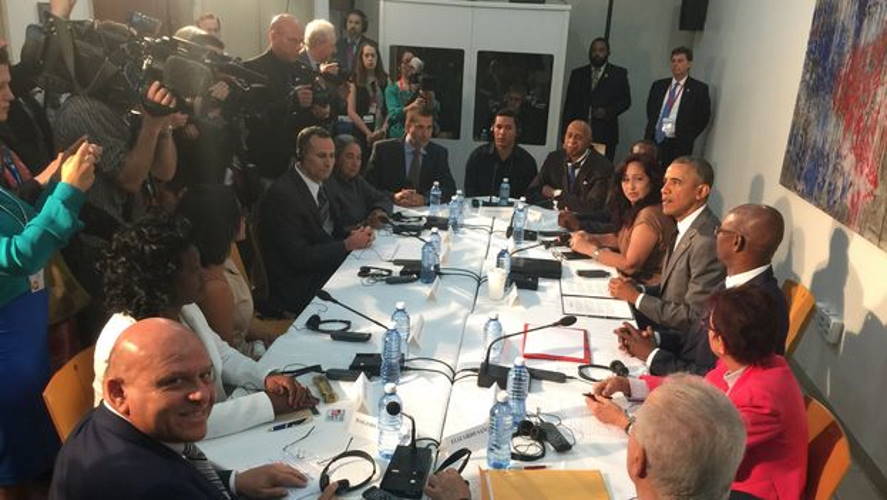Havana Cuba. — In Venezuela, the regime of Nicolás Maduro, when it was against the ropes, and using a false opposition —the so-called “functional opposition”— managed to dissolve the interim government of Juan Guaido and divide the true opposition between those who agree to dialogue with the ruling party and those who do not. In this, as in pure and hard repression, the advice of Cuban State Security has been very helpful.
In Cuba, where there are not even the hints of democracy that remain in the countries of the so-called socialism of the 21st century, State Security has succeeded in sowing division and antagonism in the movements opposed to Castroism.
Paradoxically, fragmentation, individualism, improvisation, spontaneity have made the work of the repressors much more difficult. A united opposition would have been easier for State Security to head off; but the repressors chose to divide. So, fueling the differences and the difficulties to have the opponents face each other and so that they cannot agree even on the many points they have in common, the political police have found themselves caught up in a puzzle in which a lot of work has to be done to continue. the thread of the plots created by its infiltrators and provocateurs, or those that sprout among opponents out of jealousy, desire for prominence, intolerance, etc.
A large, militant exile, with financial resources and a strong presence in US politics, has led to the existence of two oppositions to the dictatorship: one internal and one abroad. Sometimes the tactics, strategies and interests of both interfere; and through its infiltrators and provocateurs, State Security has taken advantage of this situation to fuel conflicts within the opposition factions.
It has been the case that some exile organizations —also not exempt from the infiltration of the G2—, in order to advance their agendas, have caused the fracture or duplication of projects in Cuba that had tangible results.
The question is not sacrificing or subordinating projects that work for others that are in the pipeline, we will see if they work and what comes out of them. What is new is not necessarily the best.
It is not that we bet on the known bad or regular (of which we already know its merits and also of the leg that limps) before the good one to know. Life has taught us to doubt charismatic types with natural leadership conditions; also of the too brave and easy talker. If we are going to look for new leaders, past and recent experiences indicate that we must be cautious. We do not need caudillos, we have already had enough in history, but rather responsible and politically mature citizens, capable of finding solutions through consensus and debate.
The fatigue due to the many documents periodically issued by certain opposition leaders is logical; that we distrust populist language to please everyone and the ingenuity regarding the possibility, almost impracticable —at least for now—, of dismantling the dictatorship based on its own laws.
The slightest loopholes that “socialist legality” leaves by carelessness are not enough to create too many illusions and believe that the dissidents, decimated, still without quite leaving the walls of the ghetto and without conquering the minds and hearts that are too apathetic and afraid of the population is able to impose conditions on the regime. What to say then about projects that dictate their ultimatum to the dictatorship as if the opposition forces, after controlling several provinces, were at the gates of Havana!
It will not be with documents or political concepts that are abstract in the face of so much daily stress that popular mobilization will be achieved.
Bringing together many of the biggest names in the opposition and civil society in one project can be decisive in achieving unity, but experience has taught us that signatures alone are not enough. Soon some of the signatories will begin to disagree with some points and even commas, or argue that they did not read the text correctly, or that they are not satisfied with their signature appearing above, below, or next to that of so-and-so or so-and-so. Then will come the haggling of merits and the usual string of mutual disqualifications. Among them, the most popular: the accusation that “the other” works for State Security.
Rather than a false unity imposed under dubious budgets and putting together impromptu agreements, points of agreement must be sought and a way for the different opposition projects to complement each other. If the affinities are not strong enough to unite us, then let us maintain pluralism.
When I say that we must not lose plurality, it is not that I am advocating the pot of crickets that the opposition sometimes seems to become. I speak of pluralism, but with respect and tolerance when debating.
Right now there are not many opposition leaders willing to sacrifice their projects in pursuit of a common one, with results in the medium or long term. Even less that they agree to modestly subordinate themselves to another leader.
By forcing a unity for which we are not prepared, we must not sacrifice plurality within the opposition, the diversity of approaches and visions. It is something that we have already advanced on the road to democracy, where consensus is sought and not unanimity. Let’s keep this in mind before rushing into the ranks of another single party, to applaud the orders of a Chief Dissident.
OPINION ARTICLE
The opinions expressed in this article are the sole responsibility of the person who issues them and do not necessarily represent the opinion of CubaNet.
Receive information from CubaNet on your cell phone through WhatsApp. Send us a message with the word “CUBA” on the phone +525545038831, You can also subscribe to our electronic newsletter by giving click here.















